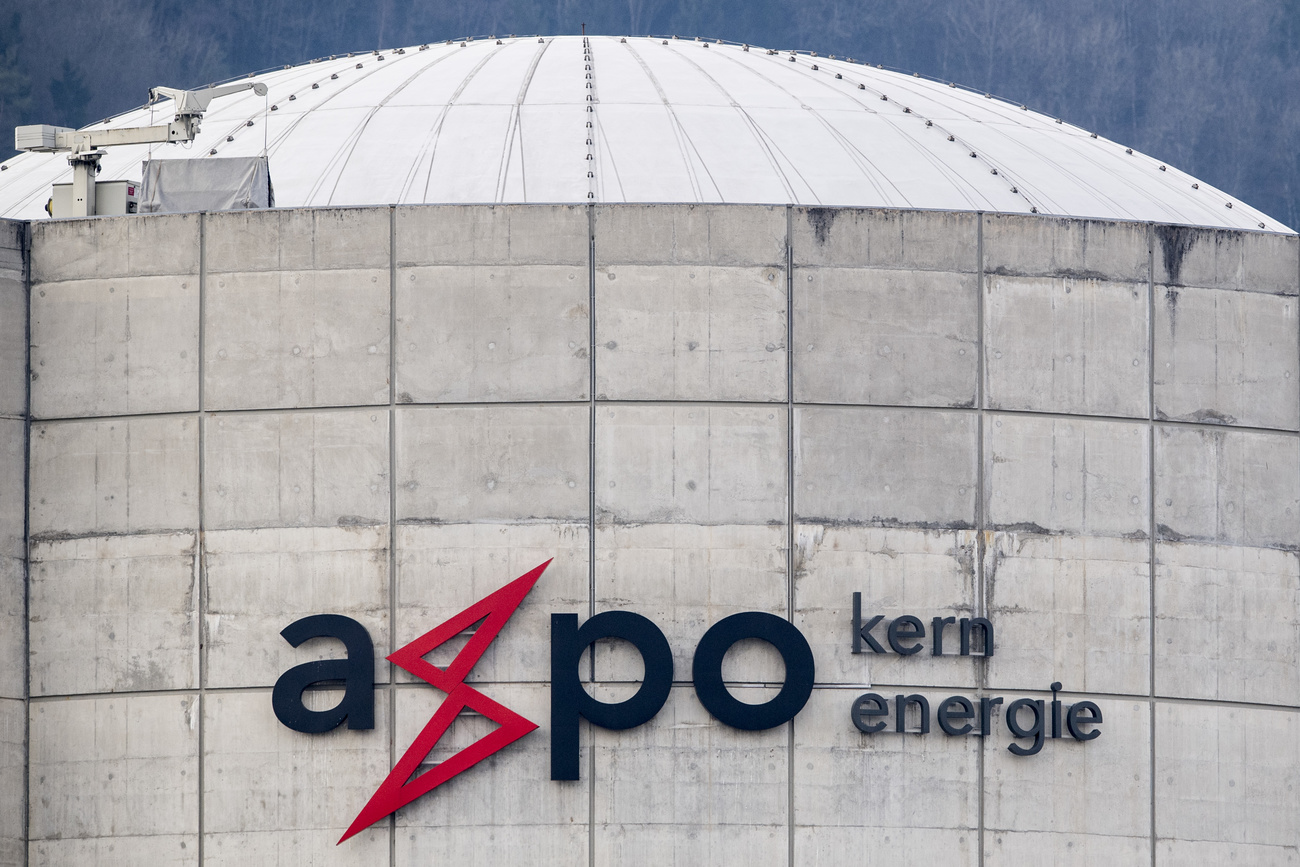
Use of Russian uranium for Swiss nuclear power under scrutiny

Russia’s state-owned nuclear firm Rosatom helps fuel two nuclear power plants in Switzerland. That commercial link is now under scrutiny as the Western world puts financial pressure on Russia to stop its aggression against Ukraine.
Swiss electricity company Axpo purchases fuel from Rosatom to operate the Beznau and Leibstadt nuclear power plants in canton Aargau.
In a statement published on Thursday, the environmental NGO Greenpeace urged the authorities of seven Swiss cantons – which own Axpo – to stop buying uranium from Rosatom.
This commercial relationship, the NGO argued, helps to finance Russia’s war effort in Ukraine. Competitor company Alpiq, which runs the Gösgen nuclear site, stopped sourcing from Russia in 2016.
Honour current contracts
“If you have a proven supplier who delivers the quality you need – for safety and quality reasons – then you don’t change so easily,” Willibald Kohlpaintner, head of Axpo’s nuclear power division and a member of the management board, told Swiss public television SRF.
Axpo plans to honour its current contracts with Rosatom, Kohlpaintner added, but will not sign new ones. Axpo currently sources three-quarters of its total fuel from Rosatom.
The two reactors at Beznau rely fully on Russian fuel. At Leibstadt, which is also operated by Axpo, half of the enriched uranium is sourced in Russia.
However, Kohlpainter said that Axpo was currently “intensively examining how [it] can reduce the dependence on Russian fuel”. The company also has a stockpile of natural uranium and slightly enriched uranium in Western Europe for emergencies.
Of Switzerland’s four nuclear reactors, only Gösgen, operated by the company Alpiq, does not buy Russian uranium. Alpiq said this decision was taken in 2016 due to considerations about environmental compatibility and supply chain transparency.
The company has since been sourcing uranium from Canada and Australia, before enriching in Western Europe.
Overall, 50 percent of Switzerland’s fuel for nuclear power currently comes from Russia, notes SRF.
By paying for Russian uranium – Switzerland could also indirectly help finance Russia’s military apparatus. SRF points that Rosatom is the manufacturer of Russia’s warheads and now controls the operation of various Ukrainian nuclear power plants, such as at Zaporizhia, seized after fighting on March 4.

In compliance with the JTI standards
More: SWI swissinfo.ch certified by the Journalism Trust Initiative






























You can find an overview of ongoing debates with our journalists here . Please join us!
If you want to start a conversation about a topic raised in this article or want to report factual errors, email us at english@swissinfo.ch.